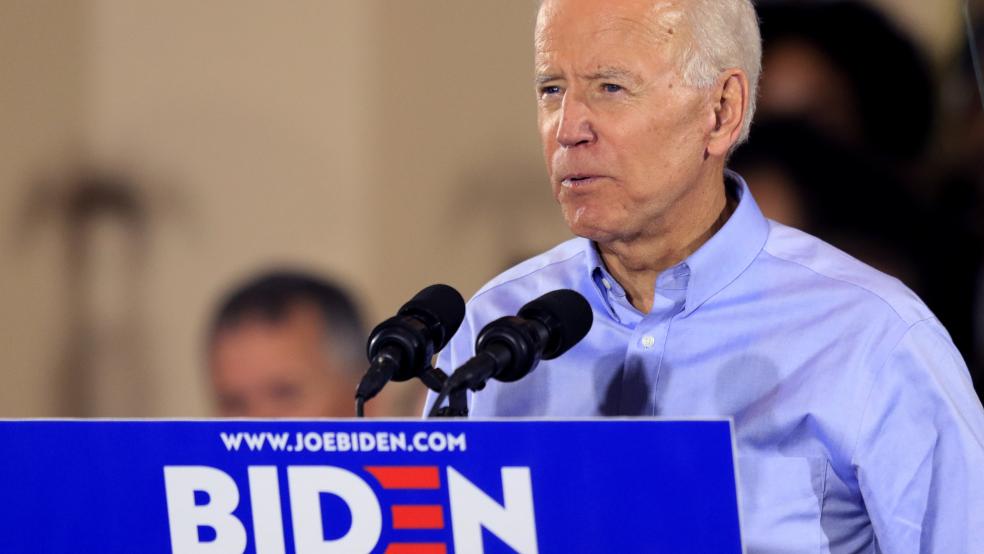Democratic presidential candidate Joe Biden unveiled a climate plan Tuesday that takes its cues from progressive demands for a dramatic change in environmental policy in the U.S. and promises to go “well beyond” the efforts of the Obama administration.
Like Rep. Alexandria Ocasio-Cortez’s proposal for a Green New Deal, the former vice president’s plan calls for the elimination of polluting emissions and the creation of millions of new clean-energy jobs.
“Biden believes the Green New Deal is a crucial framework for meeting the climate challenges we face,” the candidate’s proposal says. “It powerfully captures two basic truths, which are at the core of his plan: (1) the United States urgently needs to embrace greater ambition on an epic scale to meet the scope of this challenge, and (2) our environment and our economy are completely and totally connected.”
Some highlights from the proposal:
- Sets a goal of a 100% clean-energy economy with net-zero emissions by 2050, compared with the Green New Deal’s call for net zero emissions by 2030.
- Calls for $1.7 trillion in new federal spending over 10 years, designed to leverage private sector and state and local investments that would bring the total to $5 trillion.
- Proposes to pay for those new costs “by reversing the excesses of the Trump tax cuts for corporations,” closing loopholes and ending fossil fuel subsidies.
- Calls for rejoining the Paris climate agreement.
- Seeks to rebuild infrastructure to withstand the effects of climate change.
Many important details were left open-ended, including the enforcement mechanisms for reducing emissions, The Washington Post’s Jeff Stein said. And it’s not clear that Biden’s proposed funding sources can cover the cost. Marc Goldwein of the Committee for a Responsible Federal Budget told Stein that raising the corporate tax rate to 27 or 28 percent from its current 21 percent, as many Democrats have called for, would raise only $700 million over 10 years.




